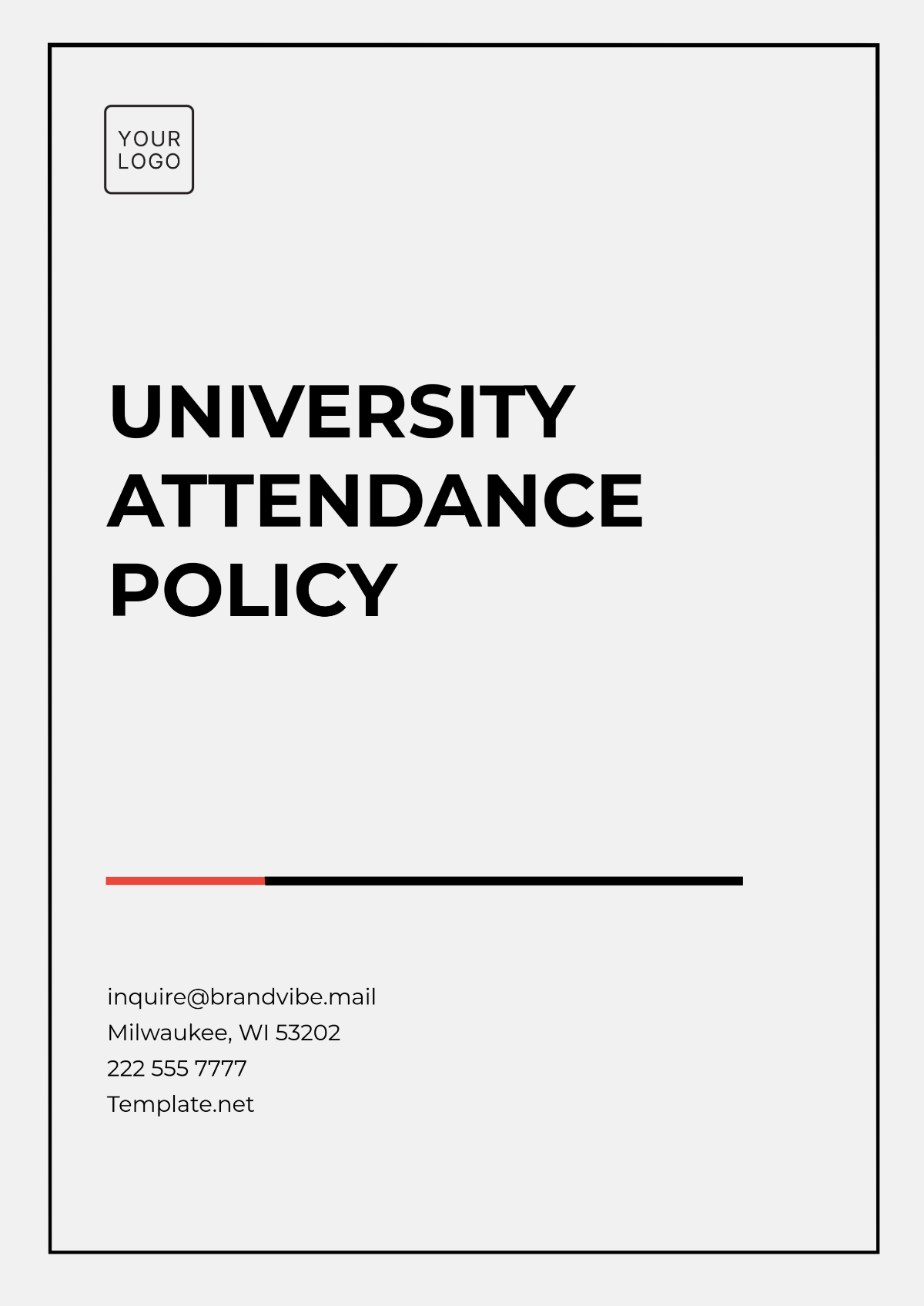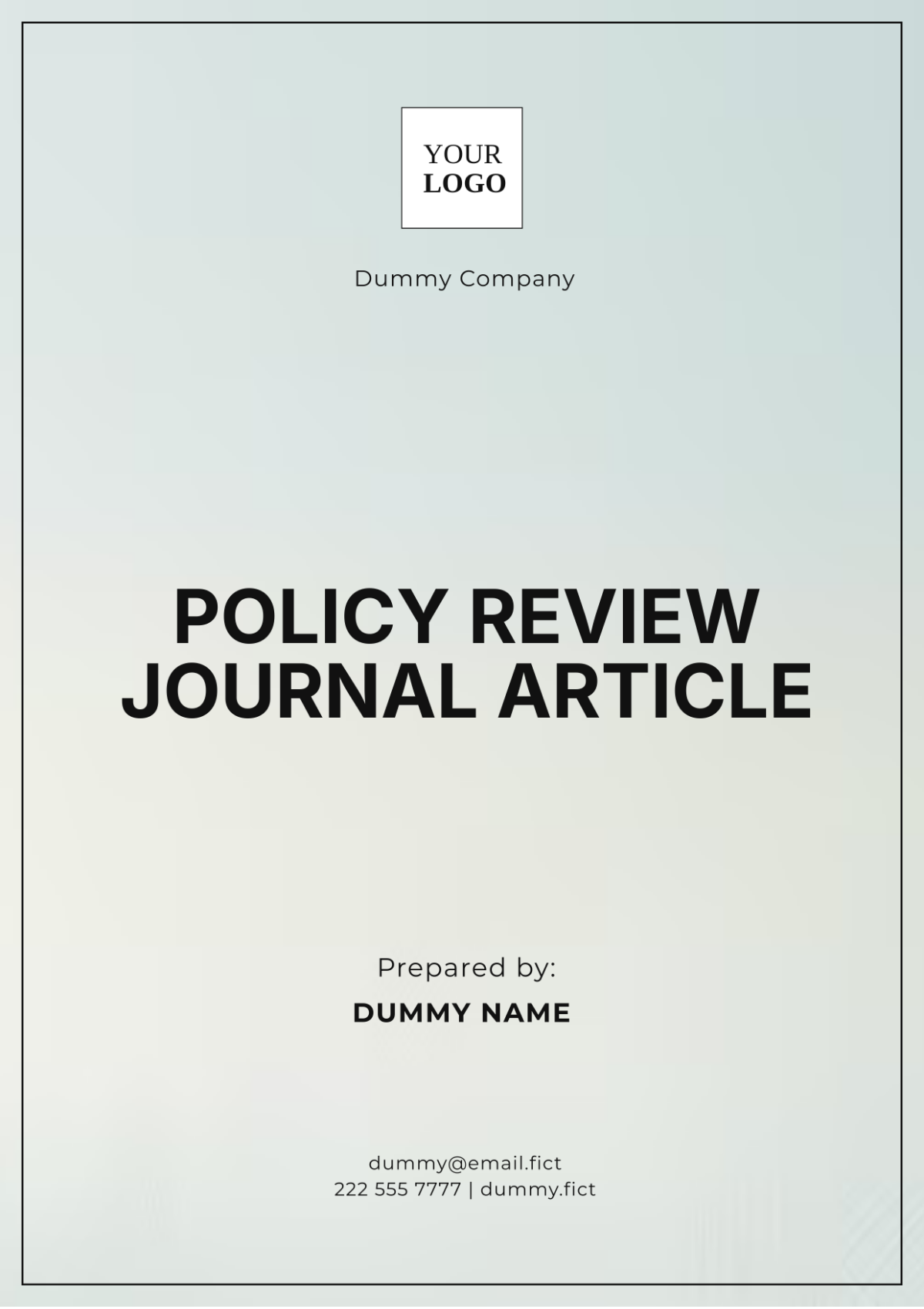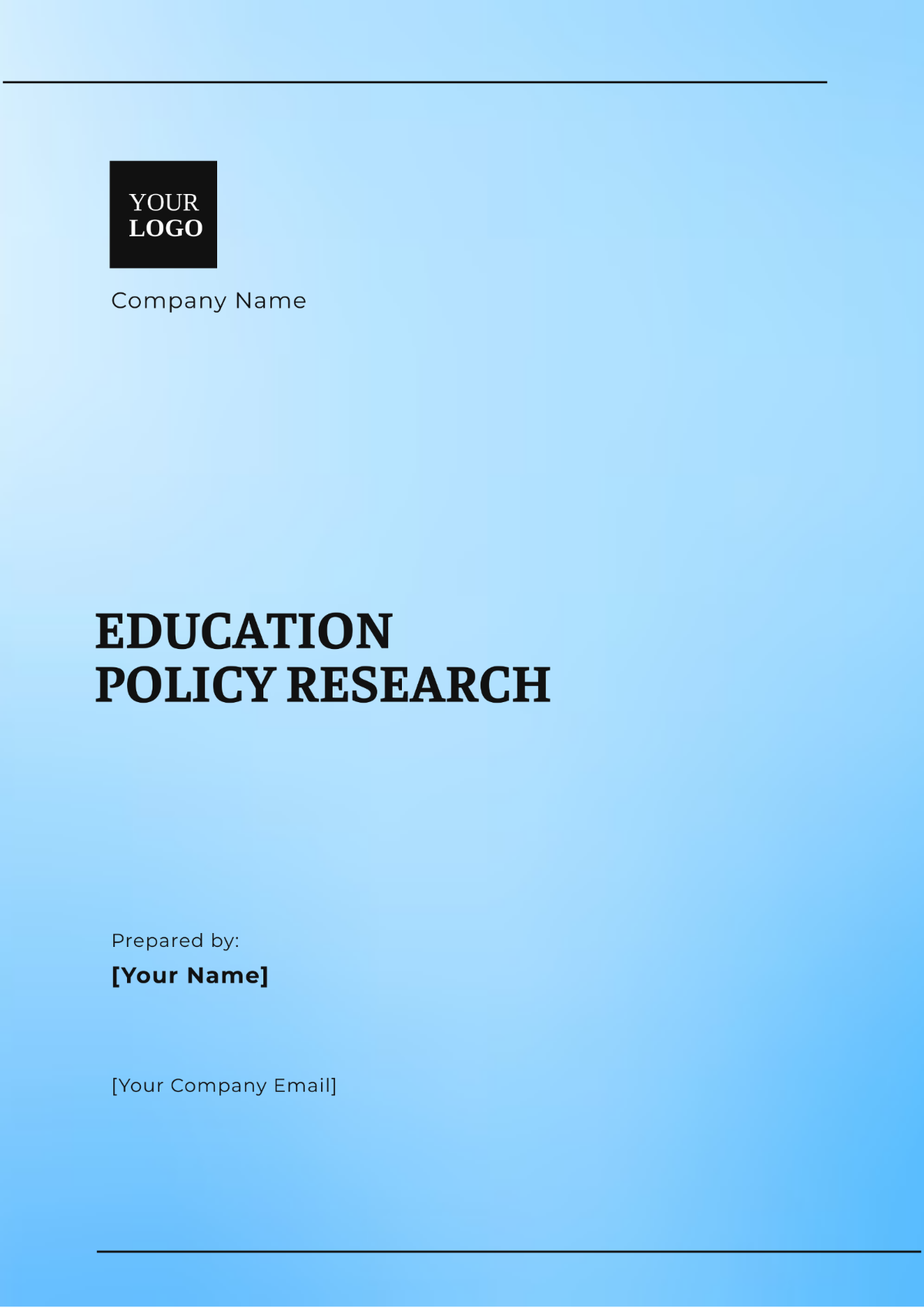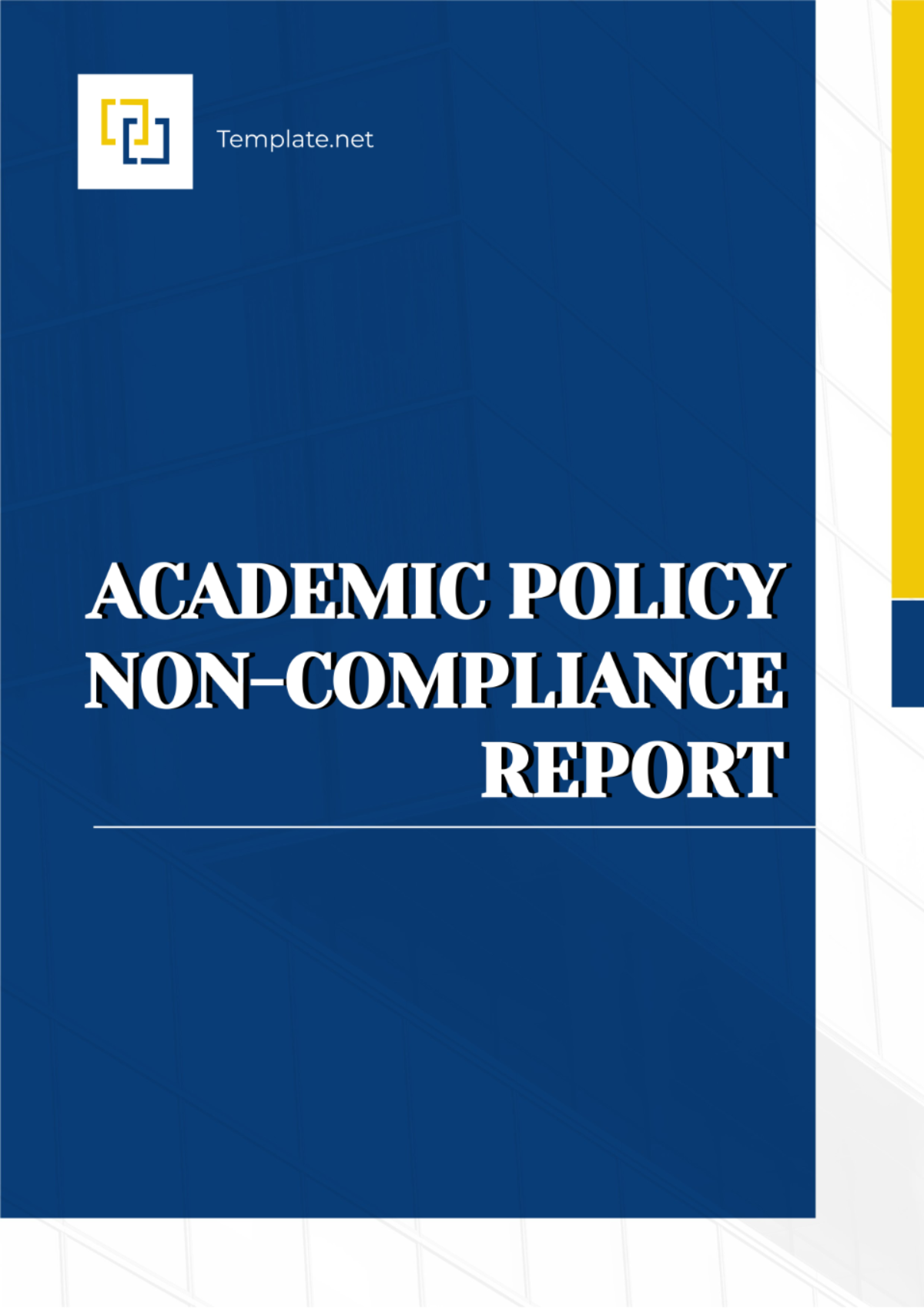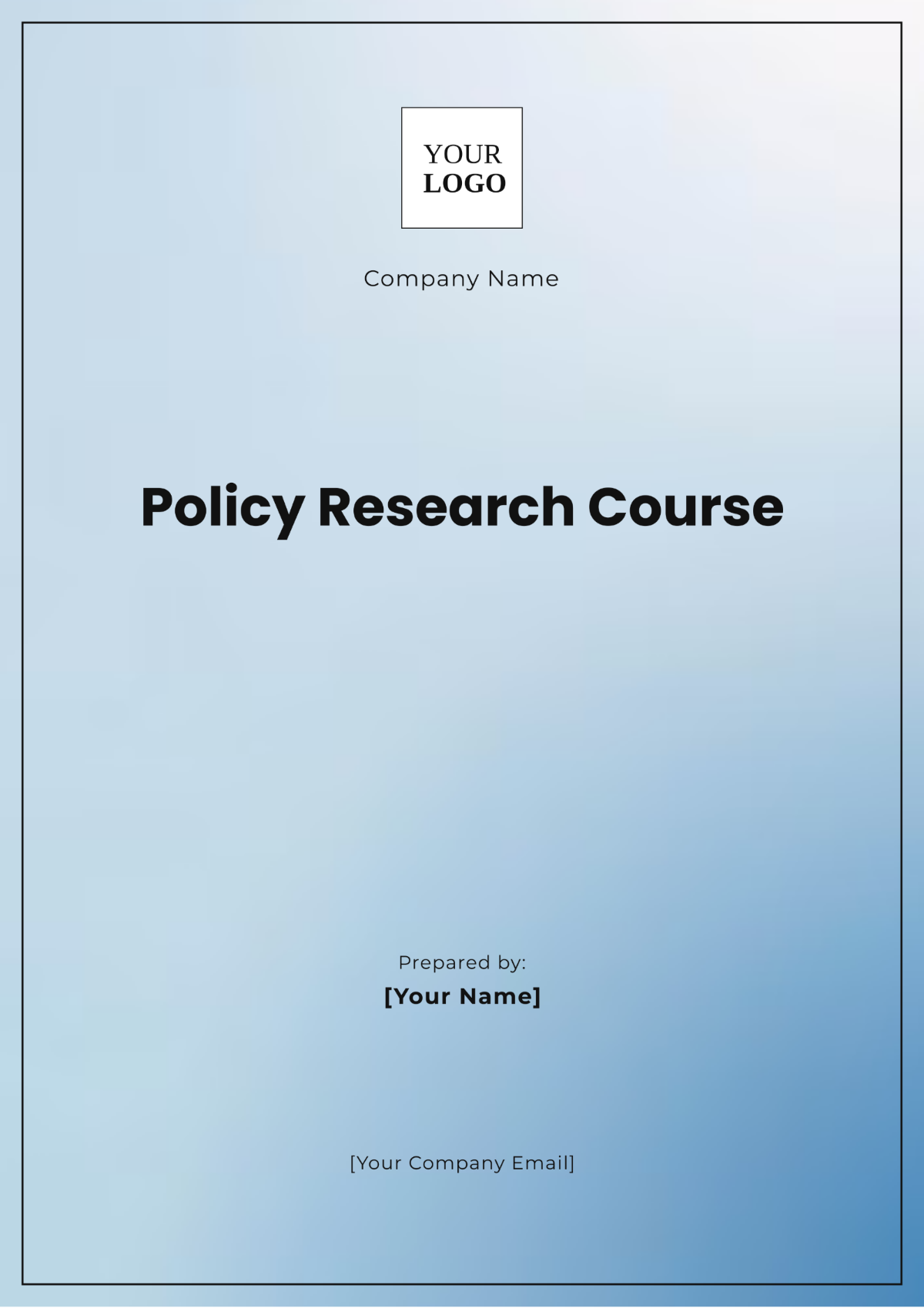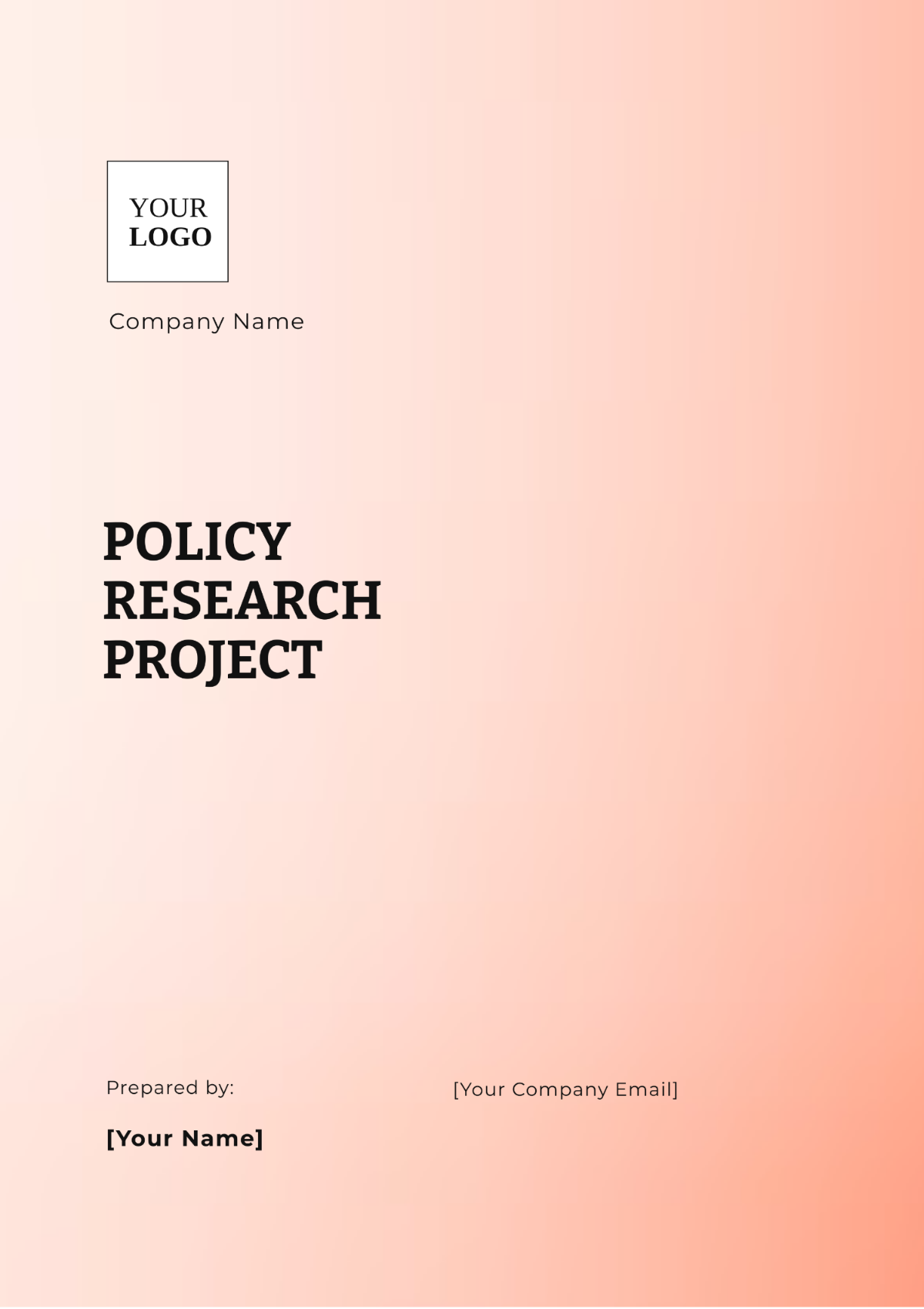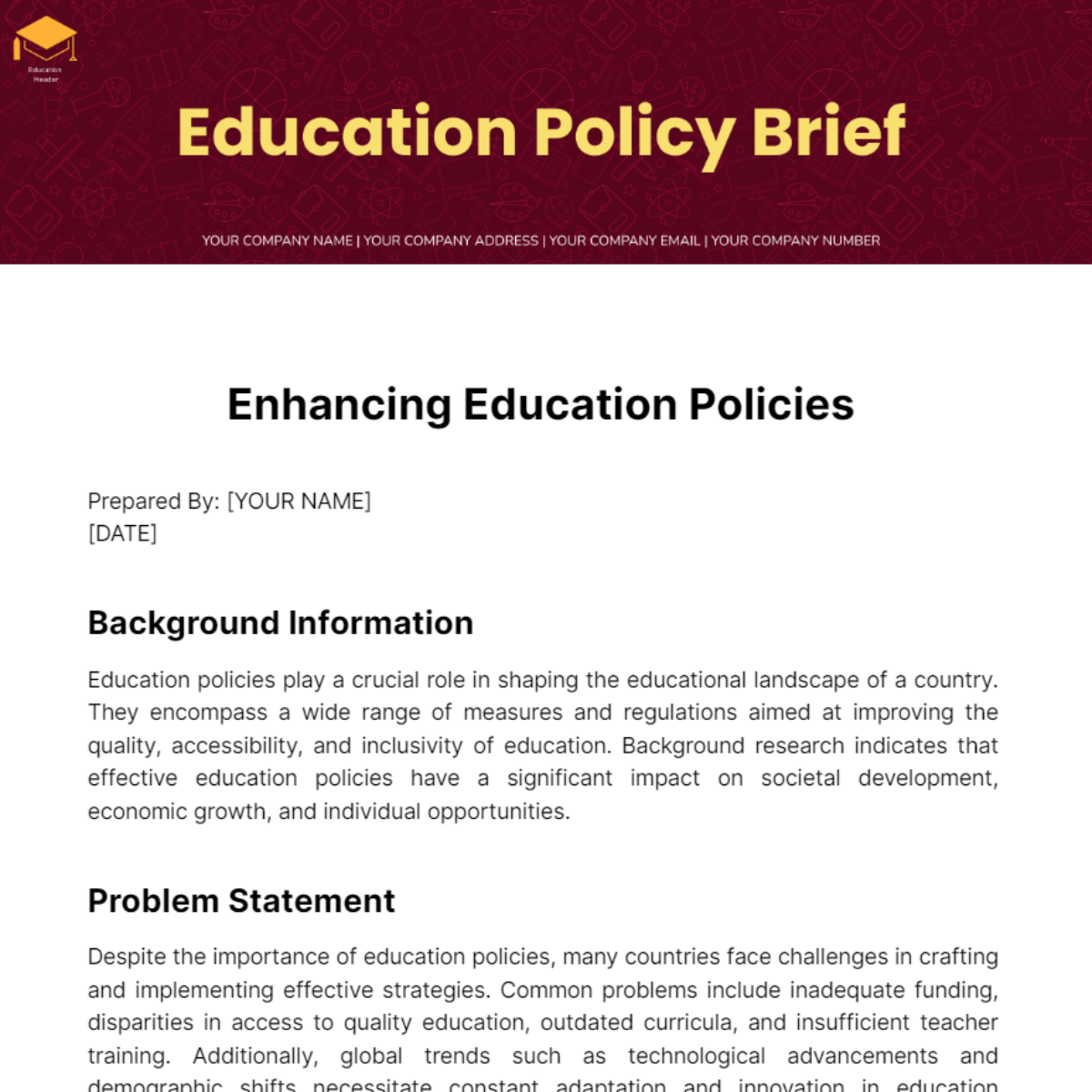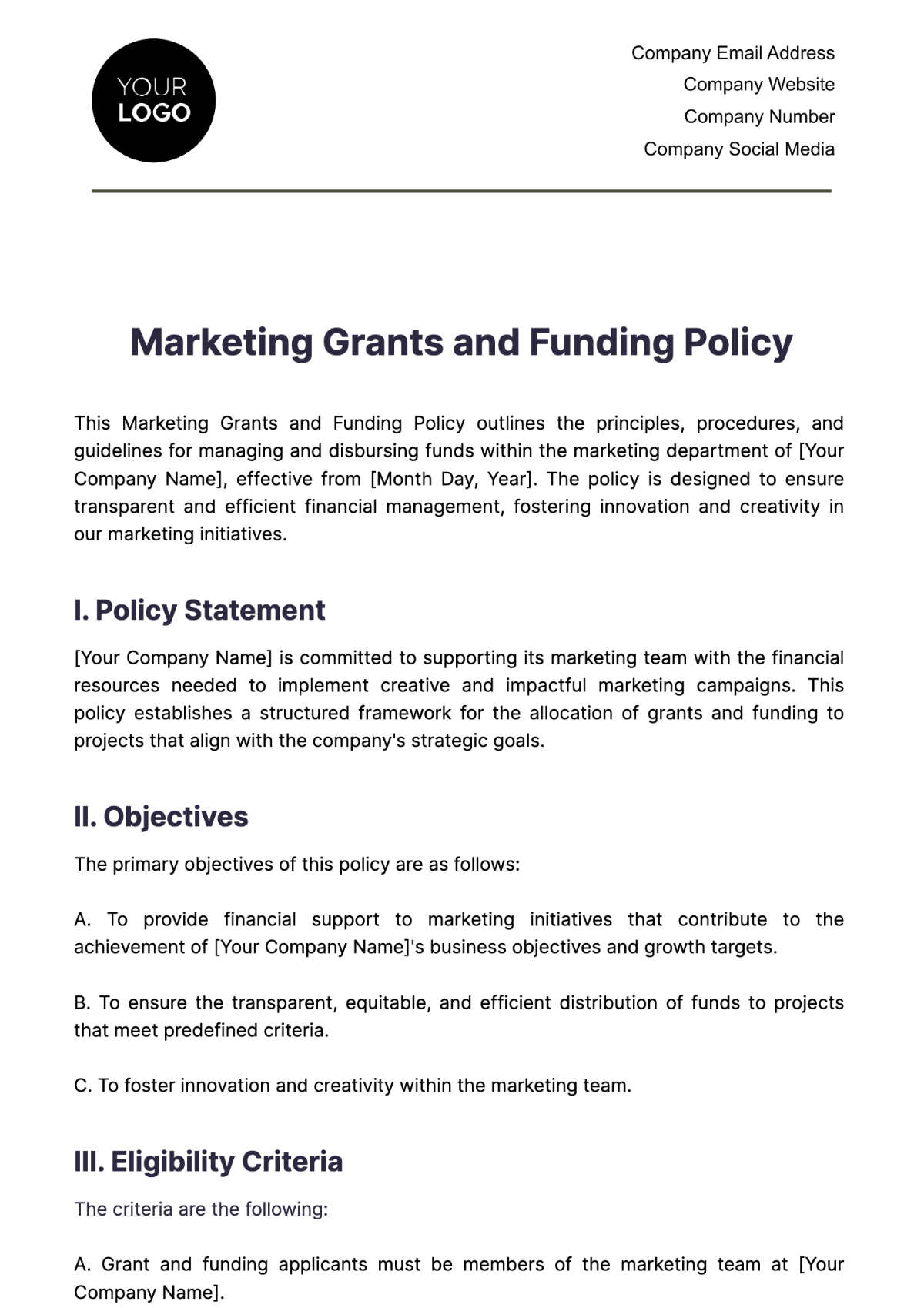Policy Research Project
Address: [YOUR COMPANY ADDRESS]
Department: Policy and Research Department
I. Executive Summary
The year 2060 presents unprecedented challenges and opportunities for sustainable urban development. Rapid urbanization, climate change, and technological advancements necessitate innovative policy solutions to ensure sustainable growth and livability in urban areas. This policy research project explores strategies for achieving sustainable urban development, focusing on energy efficiency, waste management, transportation, and housing. By analyzing current trends and projecting future scenarios, this study aims to provide actionable recommendations for policymakers, urban planners, and stakeholders.
II. Introduction
A. Background and Rationale
Urbanization is projected to reach 70% by 2060, with cities housing approximately 8.5 billion people worldwide. The increasing demand for resources and services requires sustainable urban planning to minimize environmental impacts and enhance the quality of life for urban residents. This policy research project addresses the critical need for sustainable urban development by evaluating existing policies and proposing innovative strategies.
B. Objectives
The primary objectives of this research project are as follows:
Evaluate the current state of urban sustainability policies.
Identify key challenges and opportunities for sustainable urban development.
Propose policy recommendations to enhance urban sustainability.
Assess the potential impacts of proposed policies on urban environments.
C. Scope and Limitations
This study focuses on urban areas in developed and developing countries, analyzing data from diverse geographical regions. While the research provides comprehensive insights into sustainable urban development, it does not encompass rural development policies or address all possible challenges faced by urban areas.
III. Methodology
A. Research Design
This policy research employs a mixed-methods approach, integrating qualitative and quantitative data to provide a holistic analysis of sustainable urban development. The research design includes:
Literature Review: Examination of existing studies, policies, and best practices in urban sustainability.
Case Studies: Analysis of successful sustainable urban development projects worldwide.
Surveys and Interviews: Collection of primary data from urban planners, policymakers, and residents.
Data Analysis: Use of statistical tools to evaluate survey data and identify trends.
B. Data Collection and Analysis
Data collection involved surveys, interviews, and case studies across ten major cities globally. The analysis was conducted using statistical software to assess the effectiveness of current policies and predict future trends.
IV. Current Policy Landscape
A. Overview of Existing Policies
Current urban sustainability policies focus on various aspects, including:
Energy Efficiency: Initiatives promoting renewable energy sources and energy-saving technologies.
Waste Management: Strategies for reducing, reusing, and recycling waste materials.
Transportation: Policies encouraging public transit, electric vehicles, and sustainable transportation infrastructure.
Housing: Development of affordable, energy-efficient housing solutions.
B. Challenges and Gaps
Despite progress, several challenges hinder sustainable urban development:
Resource Constraints: Limited financial and natural resources for implementing sustainable solutions.
Technological Barriers: Insufficient technological infrastructure and expertise.
Policy Fragmentation: Lack of cohesive policies across different sectors and levels of government.
Public Awareness: Limited understanding and engagement of citizens in sustainability initiatives.
C. Comparative Analysis
Policy Area | Developed Countries | Developing Countries | Key Challenges | Opportunities |
|---|---|---|---|---|
Energy Efficiency | Advanced technology | Emerging technology | High costs | Innovation potential |
Waste Management | Efficient systems | Basic systems | Infrastructure gaps | Recycling initiatives |
Transportation | Sustainable transit | Rapid motorization | Traffic congestion | Smart transportation solutions |
Housing | Green buildings | Informal settlements | Affordable housing shortages | Modular housing developments |
V. Future Scenarios
A. Technological Advancements
The role of technology in urban sustainability is paramount, with innovations in renewable energy, smart grids, and green construction materials driving progress. By 2060, technologies such as vertical farming, autonomous vehicles, and energy-efficient buildings will reshape urban landscapes.
B. Climate Change Impacts
Climate change poses significant risks to urban areas, including rising sea levels, extreme weather events, and heat waves. Effective urban policies must incorporate climate resilience strategies to mitigate these impacts and protect vulnerable communities.
C. Socioeconomic Considerations
The socioeconomic dynamics of urban populations will influence the success of sustainability policies. Addressing inequality, providing access to education and healthcare, and promoting social inclusion are essential components of sustainable urban development.
VI. Policy Recommendations
A. Integrated Urban Planning
Holistic Approaches: Develop integrated policies that address energy, transportation, housing, and waste management simultaneously.
Public-Private Partnerships: Foster collaboration between governments, businesses, and communities to implement sustainable solutions.
B. Technological Innovation
Investment in R&D: Encourage research and development in sustainable technologies and infrastructure.
Smart City Initiatives: Implement smart city technologies to optimize resource use and improve urban services.
C. Community Engagement
Public Awareness Campaigns: Educate citizens about the benefits of sustainability and how they can contribute.
Participatory Planning: Involve communities in the decision-making process to ensure policies meet their needs.
D. Policy Implementation Framework
Policy Initiative | Responsible Agency | Timeline (Years) | Expected Outcomes | Key Performance Indicators |
|---|---|---|---|---|
Renewable Energy | Department of Energy | 1-5 | Increased renewable energy use | Reduction in carbon emissions |
Waste Management Reform | Environmental Agency | 2-4 | Reduced landfill waste | Recycling rate improvement |
Sustainable Transport | Department of Transport | 1-3 | Improved public transit access | Decrease in private vehicle use |
Affordable Housing | Housing Authority | 3-6 | Increased affordable housing | Number of housing units created |
VII. Impact Assessment
A. Environmental Impact
The proposed policies are expected to reduce greenhouse gas emissions, decrease waste generation, and enhance biodiversity in urban areas. The adoption of green technologies and sustainable practices will contribute to environmental conservation.
B. Economic Impact
Investment in sustainable urban development will drive economic growth by creating jobs, attracting investments, and fostering innovation. The shift towards a green economy will enhance competitiveness and resilience.
C. Social Impact
Improved access to housing, transportation, and services will enhance the quality of life for urban residents. Social equity and inclusivity will be promoted through community engagement and participatory planning.
VIII. Conclusion and Recommendations
A. Summary of Key Findings
This policy research project highlights the importance of integrated, innovative, and inclusive approaches to sustainable urban development. By addressing current challenges and leveraging future opportunities, cities can achieve sustainability goals by 2060.
B. Final Recommendations
Strengthen Policy Integration: Develop cohesive policies that address multiple aspects of urban sustainability.
Promote Technological Advancements: Invest in research, development, and deployment of sustainable technologies.
Enhance Public Engagement: Foster community involvement and awareness in sustainability initiatives.
Monitor and Evaluate Progress: Implement robust monitoring and evaluation frameworks to track policy impacts and make necessary adjustments.
References:
World Urbanization Prospects: The 2060 Revision. United Nations Department of Economic and Social Affairs, 2060.
Global Report on Human Settlements 2060: Urban Resilience. UN-Habitat, 2060.
Technological Innovations for Sustainable Urban Development. International Journal of Urban Policy and Planning, 2060.
